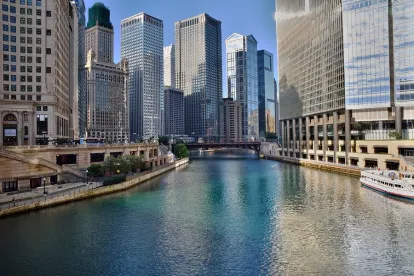On May 26, 2021, Chicago Mayor Lori Lightfoot introduced a series of ordinances (the “Ordinances”) which seek to implement new wage theft protections and provide certain employees with the ability to take paid “secure leave.” A copy of the Ordinances are available here.
First, the Ordinances would amend the Chicago Municipal Code to provide that any employer that fails to timely pay a “Covered Employee” in accordance with the Illinois Wage Payment and Collection Act will have committed “wage theft.” A Covered Employee is any employee who performs at least two hours of work in any two-week period for an employer while physically present within the geographic boundaries of Chicago. Wage theft is defined to include the non-payment of: (i) any wages required for work performed; (ii) paid time off, whether legislatively or contractually required; and (iii) contractually required benefits to a Covered Employee.
Employers that violate the wage theft ordinance would be liable to the Covered Employee for the amount of underpayments and for damages of either: (i) 2% of the amount of any such underpayments for each month following the date of payment during which such underpayments remain unpaid, or (ii) the amount set forth in section 115/14(a) of the Illinois Wage Payment and Collection Act, if the amount in the state law is greater.
Second, the Ordinances also seek to amend the Chicago Minimum Wage and Paid Sick Leave law by renaming paid “sick leave” as paid “secure leave” and providing additional grounds for eligible employees to utilize such paid leave. More specifically, an employee who works at least 80 hours for an employer within any 120-day period while physically present within the geographic boundaries of Chicago would be permitted to use paid secure leave for the following reasons:
-
For the purpose of receiving professional care, including preventive care, diagnosis, or treatment, for mental or behavioral issues, including substance use disorders;
-
If a member of the employee’s family is ill, injured, or ordered to quarantine, or to care for a family member receiving professional care, including preventive care, diagnosis, or treatment, for medical, mental, or behavioral issues, including substance use disorders;
-
If the employee, or a member of the employee’s family is the victim of trafficking in persons as defined in Section 10-9 of the Illinois Criminal Code of 2012 (720 ILCS § 5/10-9); or
-
If the employee obeys an order issued by the Mayor, the Governor of Illinois, the Chicago Department of Public Health, or a treating healthcare provider, requiring the employee to: (i) stay at home to minimize the transmission of a communicable disease; (ii) remain at home while experiencing symptoms or sick with a communicable disease; (iii) obey a quarantine order issued to the employee; or (iv) obey an isolation order issued to the employee.
If passed, the Wage Theft ordinance will become effective ten days after passage and publication, and the amendments to the Minimum Wage and Paid Sick Leave law will become effective on August 1, 2021.
Accordingly, employers with operations in Chicago should review their current policies and practices to prepare for these potential changes. We will continue to monitor and report on significant developments regarding the Ordinances.





 />i
/>i
